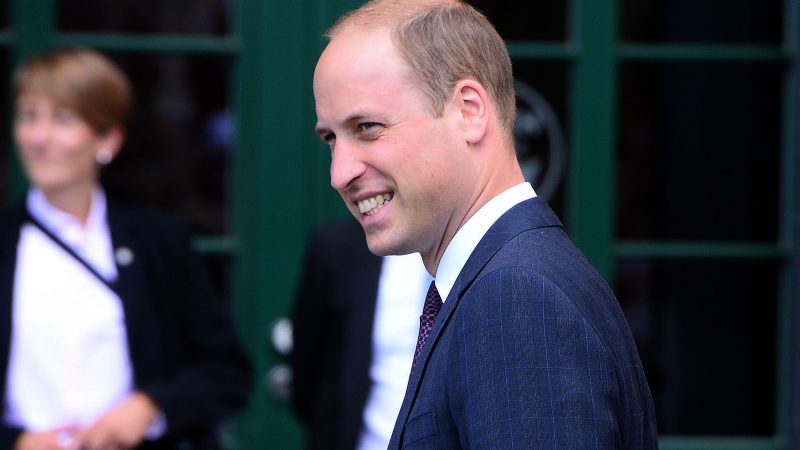
Last week was not a great week for ‘Global Britain’. We saw our Prime Minister seemingly friendless in the friend season at a NATO gathering, and our future King and Queen greeting what first appeared to be caged Trench Town locals. We were also ‘treated’ to the couple’s nostalgic parading over their ‘subjects’ from the back of a vintage open-top Land Rover, not to mention the awkward scenes when the Jamaican Prime Minister announced, before their Royal Highnesses had even sat down, that he was wishing to fulfil his country’s ambition to become independent. What a week.
As Her Majesty begins to enjoy a sort of (whispers) retirement, royal officials are busy stage-managing the next scene. Let’s skip the bit where Prince Charles’ foundation gets investigated for a cash-for-honours scandal and go straight to the next act. Enter Prince William, who – straight off the back of Uncle Andrew’s civil sexual assault case settlement, ahead of his ill-advised role at the Duke of Edinburgh’s memorial service, plus William’s sister-in-law’s accusations of institutional racism – is keen to present the modern face of the British monarchy. Move on please. And don’t mention colonialism.
Her Majesty’s Platinum Jubilee celebration provided the hook to carry the Caribbean tour, which potentially masked what one might have perceived as a pitch to keep the British monarch as Head of State in all three destinations. However, local protests highlighted themes of racism, colonialism and slavery, and saw calls for reparations and the end of the monarchy. This threw somewhat of a spanner in the royal works, leaving William vulnerable and uncertain; a reminder of the huge impact grassroots activism can have. Apt, given the House of Lords is debating our right to protest peacefully this week.
The powerful Black Lives Matter UK movement has undoubtedly played a key role in paving the way for such public strength of feeling during the tour. Such strength apparently inspired a rewrite of William’s speech, with the edited version dismissing any claim to future Commonwealth leadership and restating the Commonwealth’s ambition in supporting positive outcomes. “What matters to us is the potential the Commonwealth family has to create a better future for the people who form it,” he said. An optimistic outlook, but no recognition of his family’s past role in colonialism. And what about the 2018 Windrush scandal?
As a New Zealand national, I know the depth of pain that colonialism has caused the Māori population of Aotearoa. When the British Crown’s representative Lieutenant Governor Hobson rocked up in the 1830s, he produced an incorrectly translated treaty document for Māori chiefs to sign, which failed to mention the small detail of ceding sovereignty to the Brits. The ‘correct’ English language version became the Treaty of Waitangi and reigned supreme, resulting in the tragic devastation of indigenous communities, land wars, sacred land confiscation, genocide, and many other crimes. Colonialism at its finest.
The citizens of Belize, Jamaica and the Bahamas have the additional horror of the transatlantic slave trade to add to their list of appalling injustices. The Duke spoke of his “profound sorrow” about this matter but fell short of apologising for his family’s role in the abhorrent practice. Keir Starmer said Prince William could have gone further and hopes he does so in the future. Though the Labour leader was broadly supportive of the couple’s forward-looking attitude, he expressed disapproval at some of the optics.
An overriding sense that the Duke was losing his grip of the tour narrative developed as the tour days ticked over. Indeed, it turned into more of a farewell tour than the promotion of a new album, with all the greatest hits to boot, including an estimated £35k tour wardrobe, fit for a Duchess. Is this a good time to mention the scrapping of the £20 Universal Credit uplift and the cost-of-living crisis? Thought not.
With the least unacceptable faces of the royal family taking centre stage last week, it feels timely that William stands firm against palace courtiers. He must insist that the pace of institutional reform quickens and that changes acknowledge and correct concerns about racism and recognise the stain of colonialism. Consultation and debate around the role of the British monarchy should be inclusive and meaningful. Certainly, decisions around how future royal tours unfold need an urgent rethink: the nostalgia of yesteryear may appeal to some minority audiences, but it will not signal the survival of a modern monarchy, if indeed a modern monarchy is what the British public want.




More from LabourList
Tribute: ‘David Lipsey’s joie de vivre is missing in Labour politics today’
Ellie Reeves: ‘One year in, the next phase begins – focused on living standards’
David Blunkett: ‘The first year is always hit and miss. But we now need fast transformation, not tinkering’